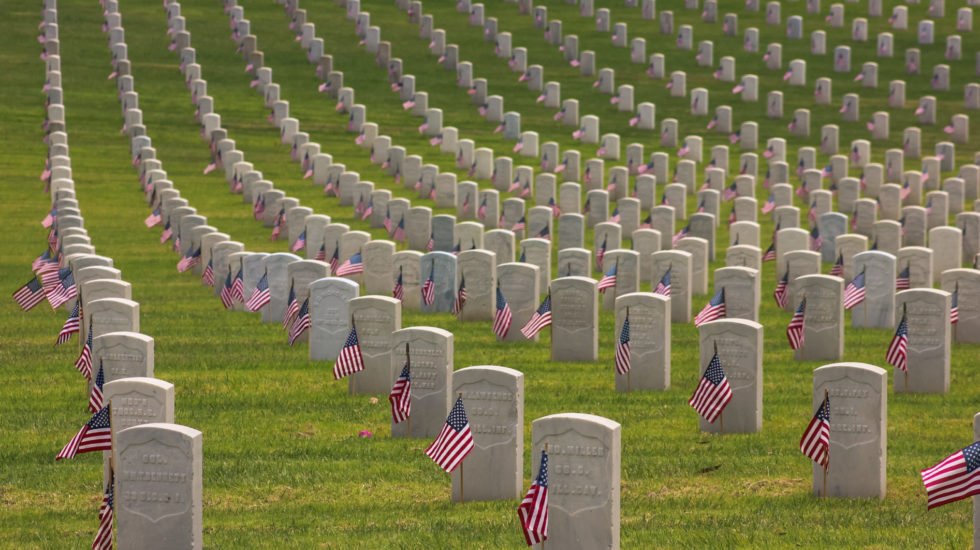It seems fitting that as the nation approaches the horrifically grim milestone of 100,000 deaths from COVID (to type the number is still not to process it), we reckon with Memorial Day, 2020. In normal times, this is a solemn occasion when we mourn and honor those who have fallen on the battlefield in service to country. Of course, Memorial Day also marks the unofficial start of summer. We gather for barbeques, parades, and trips to the beach. And if we’re lucky, when the day is done, we sink into a favorite chair with a beer and a ballgame on television. None of that is where we are today. We are in a far different world.
Yet we are in a fight literally for our lives, and we have many putting themselves in harm’s way and sacrificing greatly for our collective wellbeing. They fight against an enemy we cannot see and the do so not in some far off jungle or on a punishing beachhead, but in our midst. The struggle is first and foremost in our hospitals, but also our meat packing plants, nursing homes, supermarkets, drug stores, public transit, and many locations that in normal times don’t carry the shadow of mortal danger.
We are a nation in active grief. And the struggle is far from over with many more lives surely to be lost. So today I leave you with a poem for Memorial Day that was written in a very different time but speaks to me anew in our present. It is by Archibald Macleish, written at the request of the Library of Congress to honor their staff members who had died in World War II. In war, most who die fighting are young and the poem speaks directly of them. In our current healthcare crisis, we see the whole spectrum of age among the ranks of the fallen. But the sentiments of this poem capture what is in my own heart today far better than I could ever elucidate. Please stay safe and pause to remember those who have sacrificed everything.
The young dead soldiers do not speak.
Nevertheless they are heard in the still houses: who has not heard them?
They have a silence that speaks for them at night and when the clock counts.
They say, We were young. We have died. Remember us.
They say, We have done what we could but until it is finished it is not done.
They say, We have given our lives but until it is finished no one can know what our lives gave.
They say, Our deaths are not ours: they are yours: they will mean what you make them.
They say, Whether our lives and our deaths were for peace and a new hope or for nothing we cannot say: it is you who must say this.
They say, We leave you our deaths: give them their meaning: give them an end to the war and a true peace: give them a victory that ends the war and a peace afterwards: give them their meaning.
We were young, they say. We have died. Remember us.



